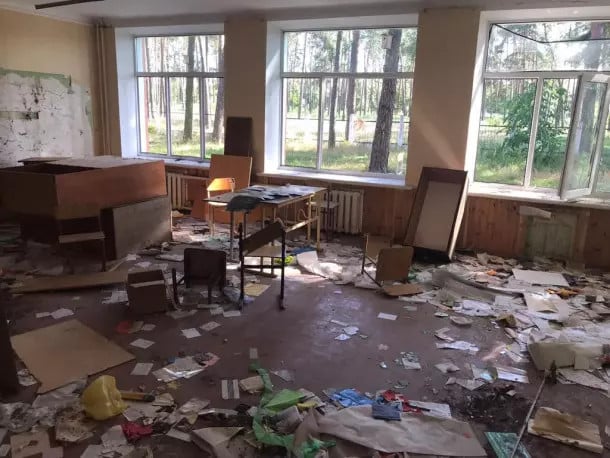Sweden is contributing US$ 6.5 million (SEK 75 million) to bolster UNESCO’s Emergency Assistance Programme for Ukraine.
Sweden’s flexible funding allows UNESCO to respond swiftly to emerging needs and will be deployed to support the Organization’s work on rehabilitating and renovating educational infrastructure, with a focus on shelters in kindergartens and schools.
Sweden is contributing US$ 6.5 million (SEK 75 million) to bolster UNESCO’s Emergency Assistance Programme for Ukraine. Sweden’s flexible funding allows UNESCO to respond swiftly to emerging needs and will be deployed to support the Organization’s work on rehabilitating and renovating educational infrastructure, with a focus on shelters in kindergartens and schools.
As of 21 November 2023, 3,428 education institutions have suffered damage, and 365 have been completely destroyed, according to the Ministry of Education and Science of Ukraine. Among the damaged and destroyed institutions are 1,275 kindergartens, which has resulted in further decline in preschool attendance.
Building on the achievements made to date through UNESCO’s ongoing education programmes in Ukraine, in collaboration with Sweden and other partners, the Organization will support a comprehensive recovery of the education sector, including the following elements:
- Rehabilitate damaged and destroyed infrastructure for kindergartens in prioritized regions.
- Equip the rehabilitated classrooms with necessary furniture and facilities for accessibility and water, sanitation and hygiene.
- Build or enhance shelters while ensuring that they meet the safety requirements and winterization needs.
- Support the creation of inclusive spaces where students and teachers can access mental health and psychosocial support services.
A return to face-to-face learning
Aligned with the Government of Ukraine’s vision for education recovery, UNESCO works to support the priority of a safe return to schools. By the end of September 2023, only 45% of general secondary level students were studying in person, including in two shifts. To ensure that more students return to schools safely, the provision of shelters is essential. Current statistics reveal that shelters have been established in 67% of kindergartens, 75% of primary and secondary schools, and 85% of vocational schools. Building new shelters and improving the existing ones is an imperative for ensuring a safe and inclusive education environment.
For almost two years, education has been continuing in Ukraine amid war. UNESCO, together with partners, is committed to supporting learners, teachers and the entire educational community.

